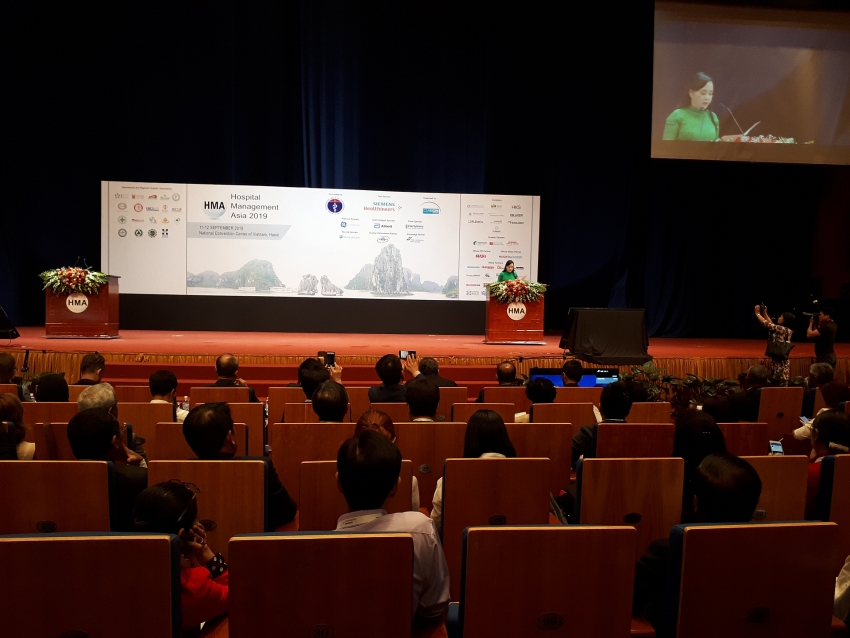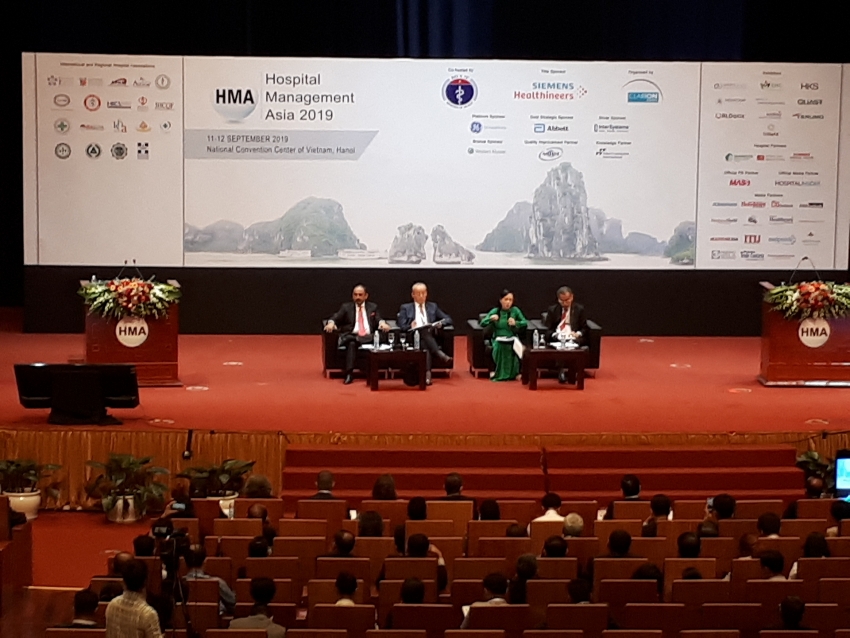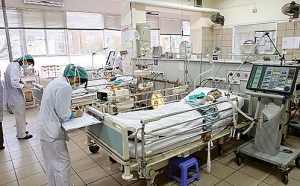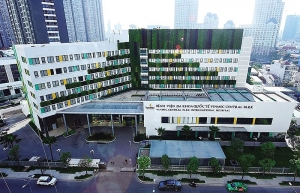2,500 people attend Hospital Management Asia 2019 in Vietnam
 |
| Nguyen Thi Kim Tien, Vietnam's Minister of Health |
The two-day event, which attracted the participation of Vietnamese Minister of Health Nguyen Thi Kim Tien, her counterparts from regional countries, as well as 2,500 representatives from 28 countries, including speakers, managers and operators of leading hospitals, and healthcare services providers in the region and the world.
Participants included many global healthcare leaders such as Siemens Healthineers, GE Healthcare, and Abbott, and a number of public and private hospitals in Vietnam.
In her opening remarks, Minister Tien said that Vietnam has made efforts to improve its healthcare system and is eager to learn from other countries.
“Vietnam has been rated as a low-middle income country with resource constraints, but the government of Vietnam has been making tremendous efforts in the protection and care for its people. However, besides the initial gains and results, we will focus on the following issues: enhancing quality of care at the grassroots level; continuing to transform provider payment methods towards DRG-Casemix; developing a clinical audit system; and working toward the independent evaluation of hospital services with publically-accessible evaluation results.”
 |
| The Ministers of Health Panel |
Starting the discussions was the Ministers of Health Panel, focusing on healthcare objectives and how hospitals can help. Hospital Management Asia 2019 included many breakout sessions on digital transformation, CEO forum, financial management, hospital management forum, as well as partnerships and collaborations, among others. They discussed many burning issues such as a strategy for reducing harm, providing high-value care at a lower cost, a shift in delivering care through tele-rounding, adapting to international guidelines to improve patient safety and health outcomes, healthcare 4.0, patient experience, and many others.
The main topic focused on the visualisation of digital transformation in the health sector in the context of the Fourth Industrial Revolution combined with big data, artificial intelligence, and smart health technologies.
According to Siemens Healthineers, the healthcare industry is facing constant change. Digitalising the market and rapid technological progresses are accompanied by changed regulatory demands, cost pressure, and growing customer expectations. Highly promising technology is opening up previously unimagined opportunities, thanks to exponential growth in computing power, huge memory capacity, and growth in networking. The key concept is AI.
 | Vietnam’s healthcare sector acts to reduce plastic waste The Ministry of Health on August 15 held an online conference with 63 cities and provinces on taking measures to lower plastic waste in the ... |
 | Plastic waste reduction strictly urged at Vietnamese hospitals Domestic and foreign-invested hospitals in Vietnam will have to take stern action to reduce plastic waste in line with the Ministry of Health's latest-issued Document ... |
 | Hospitals splash out on better tech and services Despite current improvements in service quality, there remain a number of shortcomings in legislation and performance that the medical sector and hospitals need to address ... |
What the stars mean:
★ Poor ★ ★ Promising ★★★ Good ★★★★ Very good ★★★★★ Exceptional
Related Contents
Latest News
More News
- EU and Vietnam elevate relations to a comprehensive strategic partnership (January 29, 2026 | 15:22)
- Vietnam to lead trade growth in ASEAN (January 29, 2026 | 15:08)
- Japanese business outlook in Vietnam turns more optimistic (January 28, 2026 | 09:54)
- Foreign leaders extend congratulations to Party General Secretary To Lam (January 25, 2026 | 10:01)
- 14th National Party Congress wraps up with success (January 25, 2026 | 09:49)
- Congratulations from VFF Central Committee's int’l partners to 14th National Party Congress (January 25, 2026 | 09:46)
- 14th Party Central Committee unanimously elects To Lam as General Secretary (January 23, 2026 | 16:22)
- Worldwide congratulations underscore confidence in Vietnam’s 14th Party Congress (January 23, 2026 | 09:02)
- Political parties, organisations, int’l friends send congratulations to 14th National Party Congress (January 22, 2026 | 09:33)
- Press release on second working day of 14th National Party Congress (January 22, 2026 | 09:19)

 Tag:
Tag:





















 Mobile Version
Mobile Version